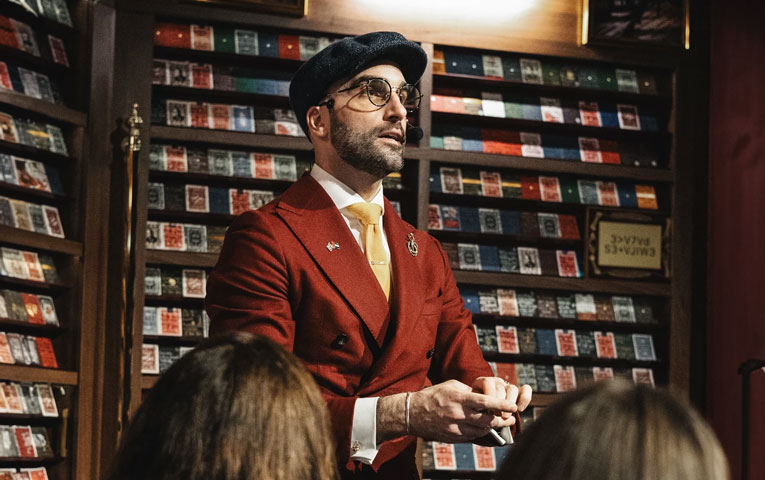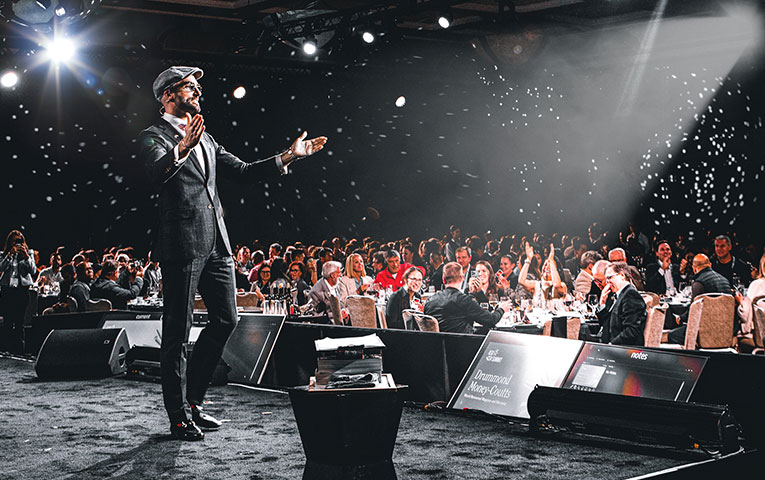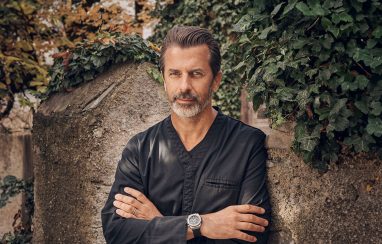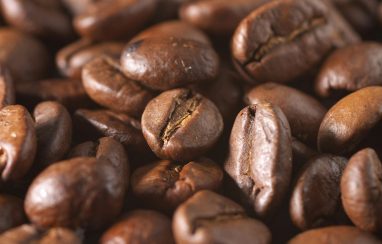By Giorgos Tsiros
If he’d shown me that trick at the beginning of our call, this interview might never have happened, because I would’ve been too stunned to speak. But it was at the very end of our conversation when British magician Drummond Money-Coutts, better known to most as DMC, offered a parting flourish: a trick from the very first module of his online academy. It unfolded over Zoom, with nothing more than a deck of cards and that impossibly calm voice. Let’s just say it involved misdirection, a surprise revelation and a finale that had me staring, speechless, at the screen.
The routine, as DMC explained, dates back to 1975 and The Complete Course in Magic by Mark Wilson. “It’s called The Fantastic Five, and it’s one of those beautiful, simple pieces that so many magicians begin with,” he said. “It combines multiple phases: a chosen card, a reversal, a reveal involving the four aces. And the fact that it still impresses, fifty years later, speaks to how well-constructed it is.”
DMC is not your average magician. The heir to a centuries-old aristocratic and banking legacy (his family founded Coutts, the private bank of choice for the British Royal Family), he grew up surrounded by tradition, privilege and expectation. Educated at Eton and later at the University of Leeds, where he studied modern languages, he could have followed a predictable path. Instead, he chose wonder.
From the earliest days of his career, DMC committed himself not just to the craft of magic, but to its risks. He’s performed across continents, brought his illusions to audiences in the streets of Barcelona, Singapore and Mexico City, and starred in critically acclaimed series on National Geographic and Netflix, including the audacious Death by Magic, which recreated acts that had once proven fatal for other performers. Today, he’s a sought-after presence at high-profile events around the world. Articulate, disarmingly charming and extremely well versed in both the history and psychology of illusion, he commands the stage (and the Zoom window) with a hypnotic, almost cinematic intensity.
We spoke ahead of his much-anticipated summer residency at Mandarin Oriental, Costa Navarino, where he will be performing for twenty-three nights this July and August: a unique opportunity for guests to witness his art up close.
In Greece, we often use the word magical to describe places of extraordinary beauty – and Mandarin Oriental, Costa Navarino certainly qualifies. Are you familiar with the resort?
I’ve read quite a bit about it; from everything I’ve heard, even within the Mandarin Oriental portfolio it’s considered one of their finest. I’m incredibly excited to be part of it.
Ιs this your first time in Greece?
Not at all. In fact, I have a beautiful connection to the country. My grandfather’s sister, Mercy Money-Coutts, married a man from Crete, Michael Seiradakis, and they lived across Greece. I had the chance to visit their son Johnny before he died: an extraordinary man. Mercy herself studied at Oxford, worked at Bletchley Park, and spent time as an archaeologist on Crete, though some believe she may have also been involved in intelligence work! So there’s this deep, meaningful family link to Greece, and I’ve visited a few times: Athens, Thessaloniki and other places here and there. It’s an extraordinary country.
For your show Impossible, a bespoke theatre for just 44 guests was created at Emirates Palace Mandarin Oriental in Abu Dhabi. Without giving too much away, could you share a few hints about what guests can expect from your residency at Costa Navarino?
That was a very special project. As you may know, magic can be a bit taboo in parts of the Middle East, often viewed as haram, so it hadn’t really existed there as a form of entertainment. I wanted to help shift that perception. We built a show that combined magic, mind reading and mentalism – a collection of some of my favourite pieces from over 30 years of performing. The show at Costa Navarino will be an evolved version of that: more refined, more interactive, but still deeply personal. I’ll be weaving in references to Greece and Greek history, so that each performance feels rooted in place, local, unique. I always say a show like this is really a conversation. Because the audience is so involved, no two shows are ever the same.
Does performing night after night become exhausting?
Not at all. Magic gives me energy. I often forget to eat when I’m performing. It’s what I love most in the world, and creating those moments night after night is deeply fulfilling.
Of course, 23 days in a row is a new kind of challenge, but it doesn’t feel like work; it’s a privilege. I do make an effort to stay physically and mentally balanced: I skip rope every day, lift some weights, and try to protect that focus. Magic requires presence. If I’m distracted, the whole performance suffers.
Coming from a family with such a storied legacy, what led you to follow such an unconventional path? How was that decision received by those closest to you?
There were definitely conversations. I was always a bit unconventional as a child. Never into football or the usual things. But magic spoke to me in a powerful way. When I was around eight, my father, who worked at Coutts, the family bank, took me to a magic shop in London. It was a fourth-generation business beneath the bank itself, run by the Davenport family. That day, he bought me a deck of cards and a book called The Royal Road to Card Magic. That was the moment everything changed. Suddenly, I realized I could learn how to create wonder, how to give others the feeling that magic had always given me. Apparently, I even said to him, “If you can be a magician, why would anyone do anything else?” I did try the traditional route, interned at Goldman Sachs and Merrill Lynch for a few months each, but it just wasn’t magic. It wasn’t alive.

Is magic respected in traditional British high society, or is it seen as frivolous entertainment?
It’s a great question. Magic has a branding problem. It’s easy to do badly and sadly, most people do. You can learn a trick and perform it without elegance or connection, which lowers the bar and misrepresents the art. Through my shows – and now the academy– I try to elevate magic, to give it the refinement and aspiration it deserves. Because magic isn’t just a puzzle to solve. When done right, it’s something to feel.
Having performed in more than 50 countries, would you say magic is a universal language? Or does its power to captivate depend on cultural codes and sensitivities?
Magic absolutely belongs in that rare category alongside music, food, dance and storytelling. It’s universal. But every culture interprets it differently. In some parts of the world, like East Africa, magic is still deeply feared and tied to dark, dangerous beliefs. I saw this firsthand while filming a documentary in Tanzania, where practices involving witchcraft and people with albinism revealed how magic can be abused. In contrast, the West has often trivialized it – something your uncle does at Christmas. It’s lost its sense of wonder. Many magicians confuse magic with secrecy, as if hiding the method is enough. But magic is much more than that. In the Far East, it still holds spiritual weight.
In the Middle East, where I now spend a lot of time, the word magic is often linked to the supernatural in religious texts, which makes performing there a kind of mission, to reshape perceptions, to show its beauty. Even today, magic is feared, celebrated, misunderstood and revered, in wildly different ways, around the world. And that’s part of what makes it so powerful.
You’ve hinted at it already, but could you attempt to define magic? Is it about wonder, about possibility, about something ancient and sacred?
It’s something I’ve thought about every day for years, and it’s incredibly hard to define. It’s like trying to explain love in six words. But if I had to try: magic is the doorway to infinite possibility. As a child, I wasn’t just into card tricks. I was fascinated by ghosts, UFOs, ancient Egypt, even Chariots of the Gods. I loved the idea that earlier civilizations knew things we’ve forgotten. So magic, for me, has always been tied to the sense that nothing is impossible. People ask, “Is magic real?” And I say, absolutely. Not in the fantasy sense, but in what it unlocks inside us. We can’t hear what dogs hear or see what bats see; there are layers of reality we’re simply not built to perceive. Magic is the feeling you get when the impossible becomes imaginable. It’s a trigger for belief, openness, transformation. It says: there’s more. And that belief has carried me through everything.
Is it inevitable that people will always ask, “How did he do it?” Is that the first instinct? To solve it?
Often, yes. But that instinct comes partly from how magicians treat secrecy. They clutch their secrets like precious toys, and the tighter you hold something, the more others want to pry it open. To me, the secret is maybe 20 or 25% of the experience. It matters, but it’s not the point. Real magic lies in connection, emotion, surprise. Knowing how a dish is made doesn’t make it taste less delicious. Watching a pianist doesn’t lose its beauty just because you understand the notes. Most people don’t actually care about the secret as much as magicians think they do. What they want is the feeling – to be moved. And that’s what I try to teach now: magic isn’t about puzzles. It’s about wonder.

From children in remote villages to VIP guests at luxury resorts, are certain audiences more rewarding than others? Or does magic have the power to unite everyone?
For me, there’s no real difference. Yes, it’s lovely to perform in palaces or for celebrities. Alicia Keys came to a private show in Abu Dhabi last year with her family, and we spent four hours doing magic. But what made it special wasn’t the fame, it was her genuine joy, and her children’s wonder. That same feeling exists in places worlds apart. I’ve performed in remote villages in East Africa and Rajasthan – just me, a deck of cards, and kids who had never seen anything like it. Watching someone experience the impossible for the first time, before cynicism, before YouTube, it’s like watching someone taste chocolate for the first time. Yes, I’ve performed for royalty. But many of my most treasured memories come from traveling to far-flung countries and sharing magic with people in remote villages who’ve never ever seen it done before. It’s not about status. It’s about curiosity, and the joy of seeing something truly new.
What about the dangerous acts? Setting yourself on fire, being dragged almost to death by a golf cart. Are these necessary for a magician to make a name?
Danger has always fascinated people. It’s what filled the Colosseum, what makes us slow down at car crashes. In a world that’s increasingly sanitized, risk still grips us. The golf cart stunt, which actually went wrong, started as a commercial. Then it became a National Geographic special called Torn Apart. It did well, and Netflix picked it up – we made an entire series based on extreme magic stunts. But by the end, I was ready to stop. Of the eight stunts we filmed, three required paramedics on site. Some mistakes came terrifyingly close to disaster. Ironically, we were making a show about magic going wrong, and we nearly lived that. Then came COVID. I had just signed a dream deal with Disney+ for their first ever magic show, but the pandemic shut everything down, and the project was lost after 14 months. That was devastating. It forced me to pivot. To rethink everything. That’s what led me to the Middle East, to Magination, and to a new chapter: less spectacle, more purpose.
We live in an age of total visibility. Everything is shared, everyone has an opinion. Has social media changed your relationship with your craft?
Absolutely. Social media has made everything more accessible, but also more disposable. We used to dream of places like Everest or the Great Barrier Reef. Now we can “visit” in seconds, and the wonder fades just as quickly. The same has happened with magic. Platforms like TikTok reward speed and exposure, not skill or storytelling. Anyone can post a reveal, steal a routine, and get clicks off years of someone else’s work. It’s the fast-food model: lots of consumption, no substance. We now have millions who know how tricks work but can’t perform a single one. That’s why I started Magination – to rebuild the craft with real depth and the life skills that come with magic, including discipline and presence. Especially for children, that human connection is being lost. A pediatrician recently told me many kids today show autistic-like traits, not because they are autistic, but because they’ve grown up in front of screens. Magic is an antidote. It’s physical, interactive, and rooted in presence. It teaches you how to truly connect. And that’s more needed now than ever.
You mentioned Magination, The World’s Magic Academy. What’s your vision for it? What do you hope to pass on to the next generation of illusionists?
We’re about to launch; everything’s ready! The site is built, the videos are live, the curriculum is in place. It begins with 20 strong, elegant card tricks using a regular deck – no gimmicks. I went back through my old books and notes and realized how uninspiring most beginner magic can be. So I curated effects that are simple, powerful, and build progressively. But Magination is about more than tricks. It’s about life skills: focus, patience, resilience, storytelling, composure. The ability to recover from failure and believe in possibility. Even if someone studies magic and chooses another path, they’ll carry those lessons with them. In a world where attention, communication and confidence are declining, I believe magic can be transformational. A deck of cards is like a football; affordable, universal and endlessly rich. Whether you’re in Bogotá or a Himalayan village, the entry point is the same. And wherever it’s needed, we’ll offer free access. This isn’t just for kids, but the mission begins with them.
How difficult is it to keep innovating, conceiving new acts, illusions and narratives? Could you walk us through your creative process?
When you start in magic, you usually begin with a secret, and then find a way to use it. But over time, that flips. Now, I start with the experience: What would create a moment of wonder? And then I work backwards to make it real. That’s especially true in television. With hour-long episodes and constant deadlines, the creative pressure was intense. These days, in live shows, I mostly use material I already love, occasionally something new from a friend, or rediscovering an old idea. It’s less about inventing, more about refining. With Magination, I’ve gone back to tricks I haven’t touched in 20 years, rebuilding and polishing them. And sometimes, for a special client or family, I’ll create something bespoke, tied to their story. Right now, I’m looking through Greek mythology for inspiration – gods in disguise, transformation, trickery. It’s an extraordinary tradition to draw from.
Do you think AI will affect magic the way it’s affecting other creative industries? Is that a concern for you?
It’s a great question. AI is transforming everything, but magic might be more protected than most. COVID devastated the magic world; live shows vanished, careers ended. But AI is different. In a world flooded with digital content, live magic becomes more rare and more valuable. Watching something impossible happen across a table, unedited, unscripted, shared in real time, it’s unforgettable. It releases joy. It connects people. So no, I’m not worried. I see opportunity. Advances in voice translation, for example, could soon let Magination speak to children in Spanish, Japanese, or German, in my voice, perfectly synced. That’s revolutionary. Used wisely, AI can be a tool, not a threat. Magic will survive. I actually think it will thrive.
So after all this, after all the definitions and stories and your demonstration, I’d say that, in one word, magic is beauty.
Beauty. That’s the word. Someone once said that great art makes us forget our mortality for a moment. Magic does that. It lifts you out of yourself. It suspends your disbelief. For a few seconds, your brain explodes with wonder, and nothing else matters. That’s what magic is. That’s why I do it.

